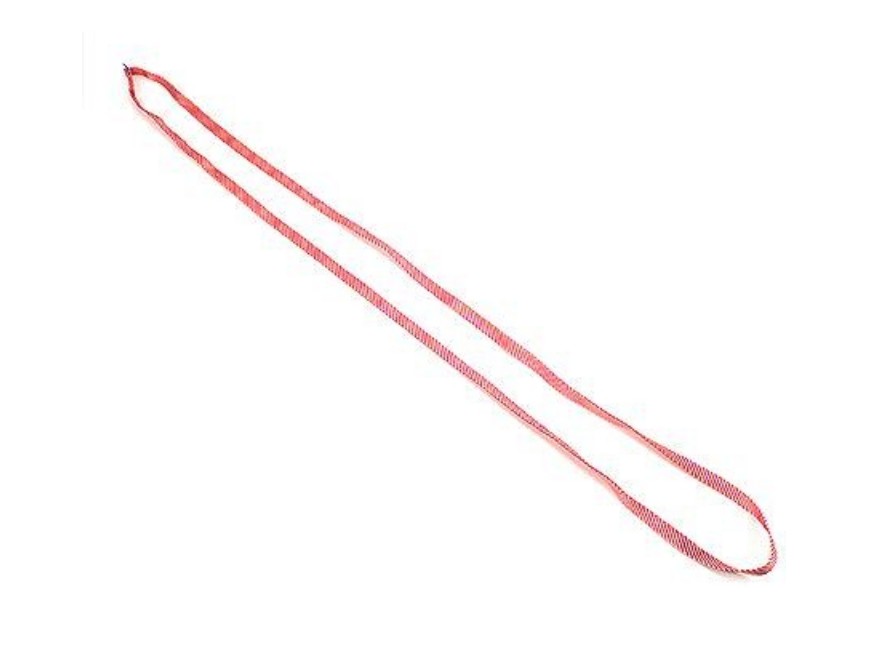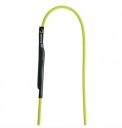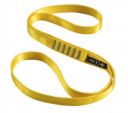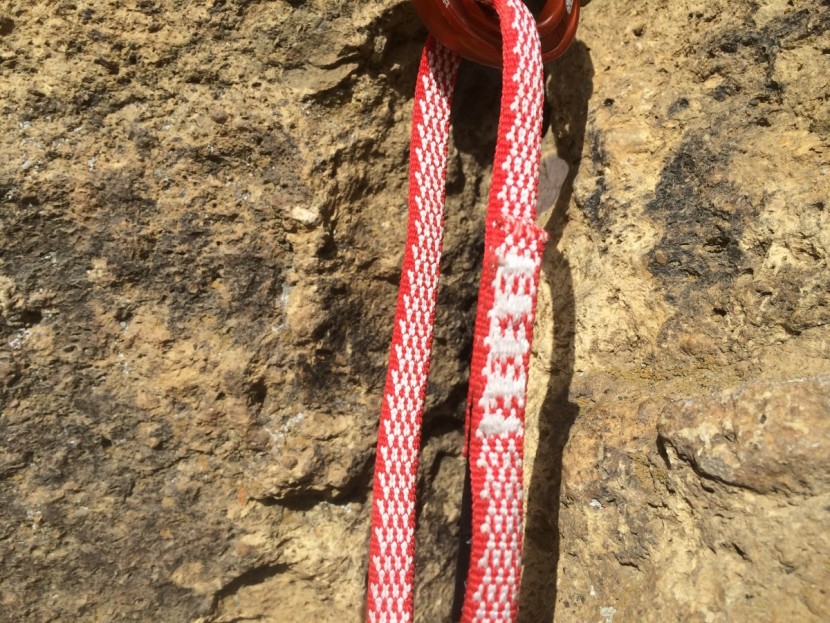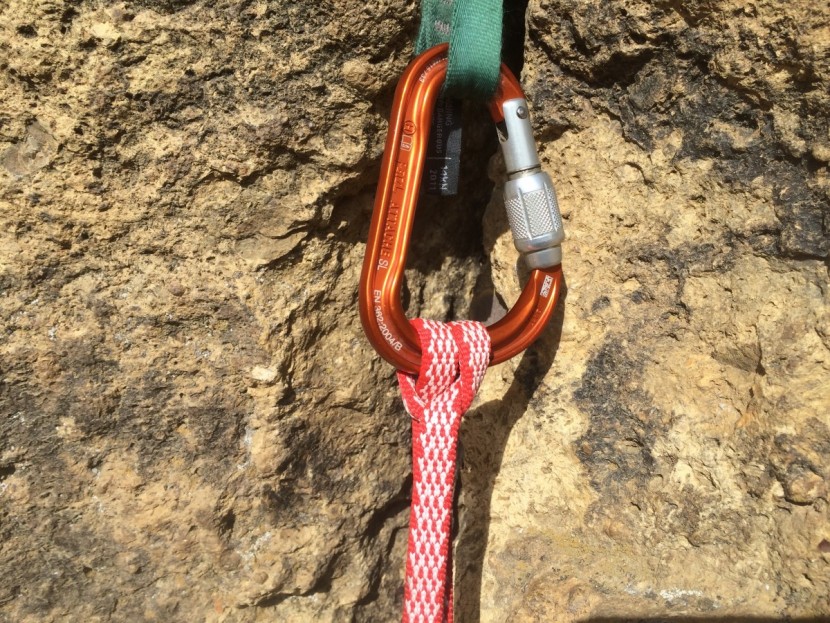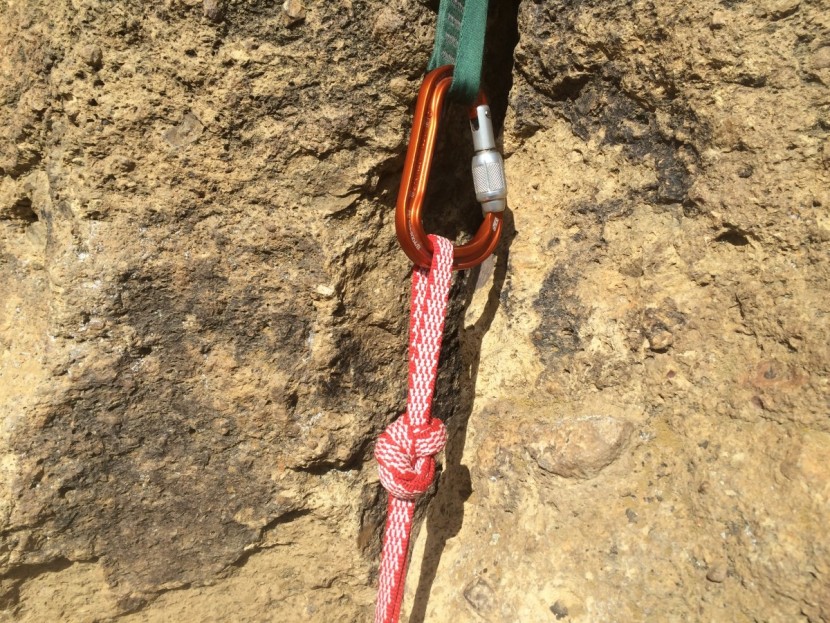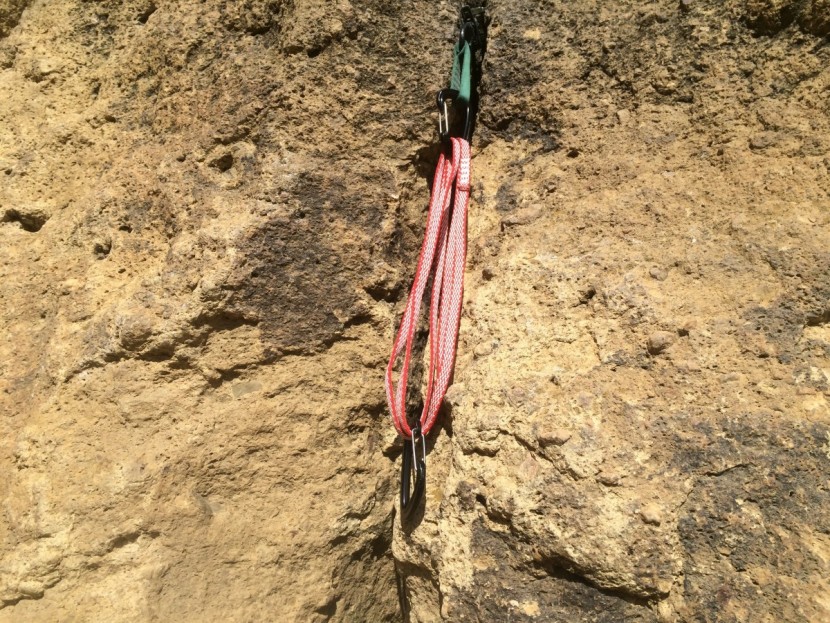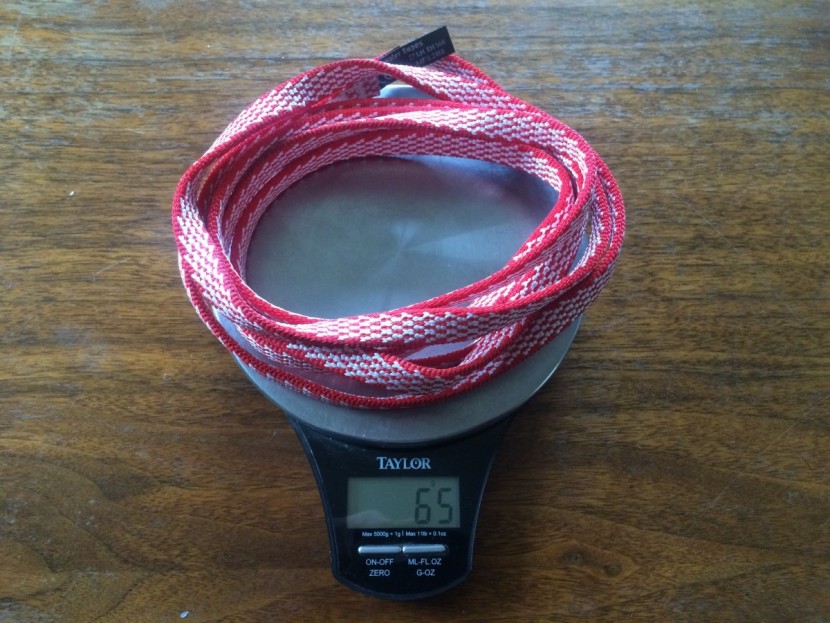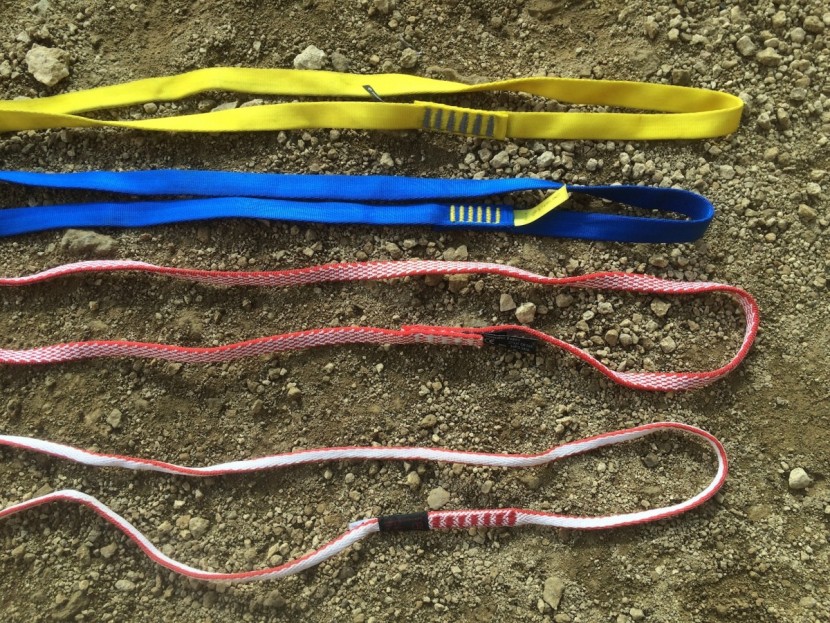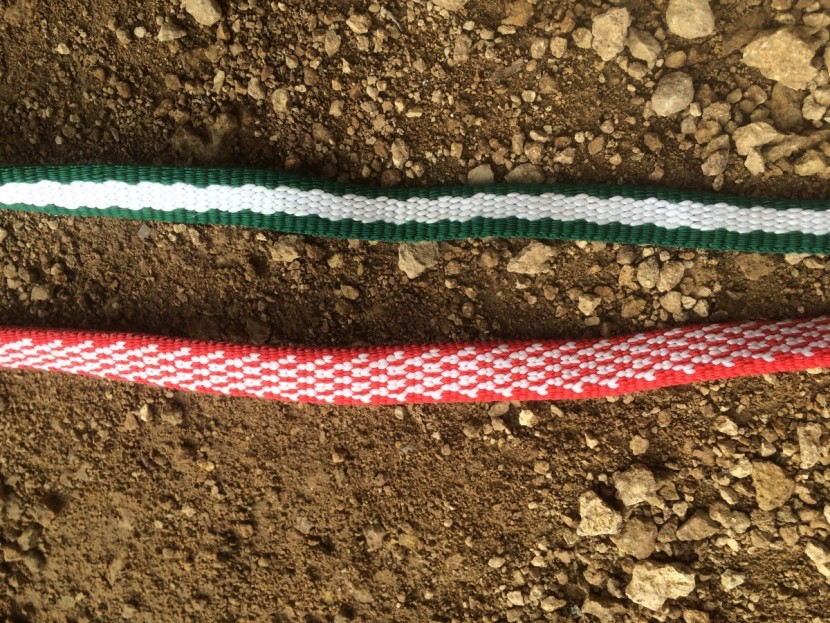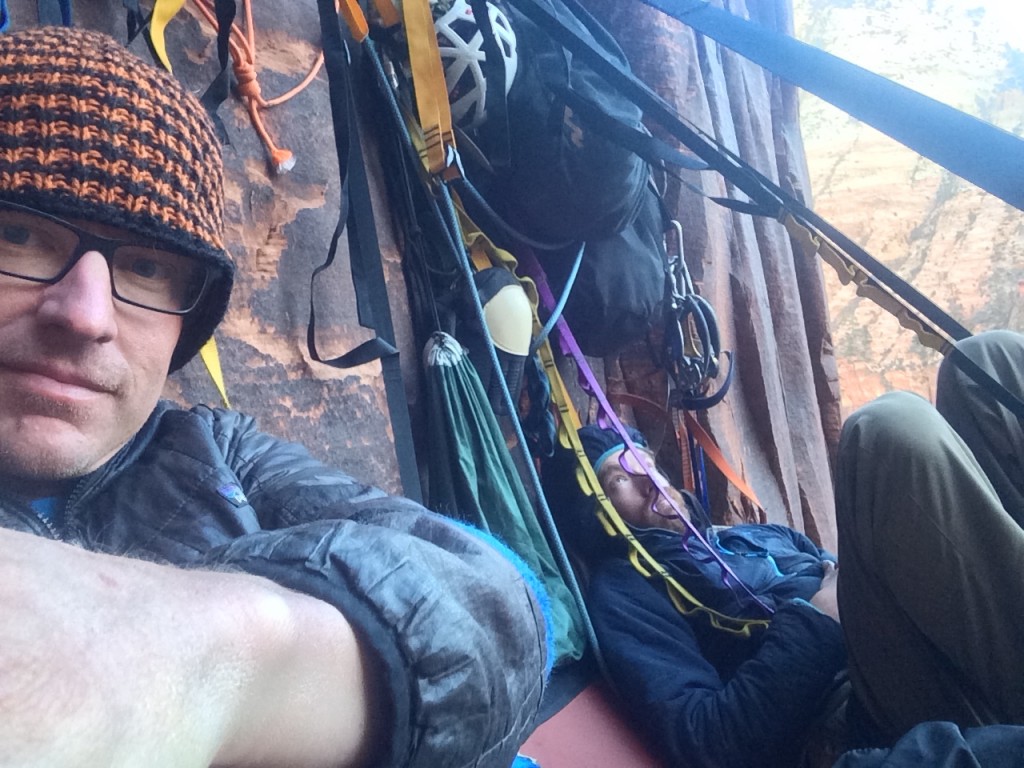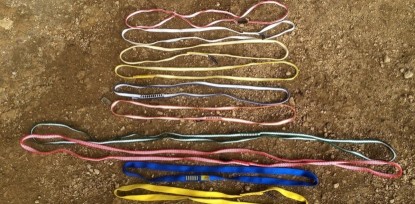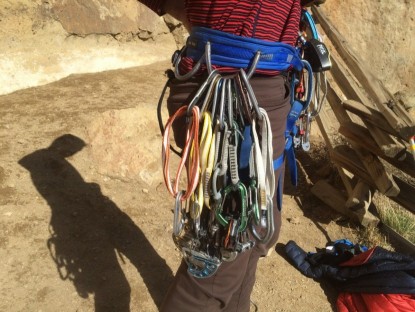BlueWater Titan Runner Review
Our Verdict
Compare to Similar Products
 This Product
BlueWater Titan Runner | |||||
|---|---|---|---|---|---|
| Awards | Best Overall Climbing Sling | Best for Building Anchors | Best for Using as Pro | Best Bang for the Buck | |
| Price | $8.00 at REI Compare at 2 sellers | $10.00 List Check Price at REI | $13.00 List $10.95 at Amazon | $17.00 List | $6.95 at REI Compare at 2 sellers |
Overall Score  |
|||||
| Star Rating | |||||
| Bottom Line | We would rather have a lighter and less bulky sling than one that is ever so slightly stronger | Our Editors’ Choice winner because it is lighter and more compact than any other without compromising performance | A good sling that excels when it comes to equalizing multiple pieces of protection | A top pick because its stiffness and durability make it ideal for use as protection | A small trade-off in performance for a relatively large savings in cost when considering buying a whole rack |
| Rating Categories | BlueWater Titan Runner | Mammut Contact Dyneema | Metolius Open Loop... | Edelrid Aramid Cord... | Black Diamond Nylon... |
| Handle (25%) | |||||
| Knot Test (25%) | |||||
| Alpine Quickdraw Test (20%) | |||||
| Weight (15%) | |||||
| Bulk (15%) | |||||
| Specifications | BlueWater Titan Runner | Mammut Contact Dyneema | Metolius Open Loop... | Edelrid Aramid Cord... | Black Diamond Nylon... |
| Type of Fiber | Dyneema/nylon weave | Dyneema | Dyneema/Nylon weave | Aramid cord | Nylon |
| Measured weight | 65g (42g for 24") | 19g | 47g (22g for 60cm) | 43g | 37g |
| Width Tested | 13mm | 8mm | 11mm | 6mm | 18mm |
| Length Tested | 48 inches | 60cm | 120cm | 60cm | 60cm |
| Strength | 26.6Kn | 22Kn | 22Kn | 22kN | 22Kn |
| Widths Available | 13mm | 8mm | 11mm; 13mm; 18mm | 6mm | 18mm |
| Lengths Available | 6"; 12"; 24"; 36"; 48" | 60cm; 120cm | 25cm; 60cm; 120cm; 240cm; 480cm | 30cm; 40cm; 60cm; 90cm; 120cm | 30cm; 60cm; 120cm; 240cm |
Our Analysis and Test Results
The BlueWater Titan Runner is one of the original Spectra slings when it first started being used for climbing purposes. Today it is made out of Dyneema (basically the same thing, although a different brand), blended in a roughly 50/50 ratio with Nylon. While this blend should allow for the positive attributes of both fibers to shine through into the ultimate sling, in practice this is not the case. The Nylon should make this sling slightly more elastic, which it does, but also cheaper, which unfortunately it does not. The Dyneema should make this sling lighter and less bulky for the same strength, but in fact it is the heaviest sling in this review, and its tubular design ensures that it is also the bulkiest. What is left is a hybrid design with few to no advantages over the more specialized competition, except for the fact that this sling is about 4kN stronger in testing than all of the others. This is not a trade-off we think is worth it however, because we can't really imagine a situation where an already absurdly strong sling needs to be even stronger, as studies have shown that slings are already one of the strongest links in your safety chain — the protection, the rock, or much more likely your body — will all break under less force than an average sling.
Handle
The blend of the two fibers that make up this sling lends itself to a comfortable feel against the skin. It is tubular in design, rather than a single piece of flat webbing, so it feels much thicker. One of the edges where the two sides would meet to make a tube is stitched together with fiber that is rougher than the regular weave, so it has the feeling of an abrasive edge, much like the Metolius Open Loop Sling has. On a positive note, the bar tack is smaller and lower profile than many slings, although it still has small tabs on either end that can hang up as they slide over a carabiner.
Knot Test
This sling, along with the purely Nylon Black Diamond Nylon Sewn Runner, is one of the lowest scorers in this test. Its thickness (13mm wide) means that it has extra material friction once knotted, and after weighting a figure-eight knot, we find it far harder to loosen the knot than purely Dyneema slings that are not as wide, and are far slipperier feeling. While we thought it would be a good option for use in anchors due to its blended construction, the difficulty we had untying weighted knots would suggest otherwise.
Alpine Quickdraw Test
Due to the thickness of the sling material, there is plenty of extra friction between the sling and the carabiner, not to mention the sling and itself, when we tripled it up and pulled it equal in the alpine quickdraw test. The smaller bar tack was appreciated as a smaller size means it is less likely to rest against the carabiner. While it isn't the best at this test, we think it is still easier to triple up than the Sterling Nylon Sewn Runner, which is a lot wider.
Weight
We chose to test the 48" quadruple-length version of this sling for use equalizing anchors, and it weighed a whopping 65g, compared to only 47g for the same length of the Metolius Open Loop Sling, which we recognized as our Top Pick for Anchor Building. While we couldn't weigh the shorter 24" version, BlueWater's website has it listed as 42g, which is still far and away the heaviest sling in this review. Especially when it comes to climbing, we feel that light is right, and so it's hard to find a spot on our racks for something that is inexplicably heavier than all of the other options.
Bulk
At 13mm wide and extra thick due to the tubular design, the Titan Sling is easily one of the bulkiest tested. While this bulk is surely one of the main factors in allowing the sling to be stronger than the rest, it makes it hard to fit a whole rack of them on a harness, and is another knock against purchasing this sling.
Best Applications
Like all climbing slings, the most useful application is for extending pieces of protection while leading, on any sort of terrain, so that the leader experiences less rope drag. While this sling is available in 48" lengths, appropriate for equalizing two pieces at an anchor, we don't recommend it very highly due to the fact that it is more challenging than most to untie weighted knots.
Value
The 48" version of the Titan Sling that we tested retails for $16, but a 24" version, comparable to most of the slings we tested here, retails for $9.50, which is not by any means the most expensive option, but isn't the cheapest either. If thinking in terms of performance, we don't think it presents amazing value, but on the other hand if assessing for durability and longevity, we think it is likely a bit more valuable.
Conclusion
The BlueWater Titan Sling was once state-of-the-art, but it feels as if perhaps the times have passed it by. It will do all that you ask of it, but not as well as the other top slings that we tested and compared it against. If you are looking for the best sling you can buy, check out the Mammut Contact Sling, and if you want the best value, you can't get better performance for less money than the Black Diamond Nylon Sewn Runner.


